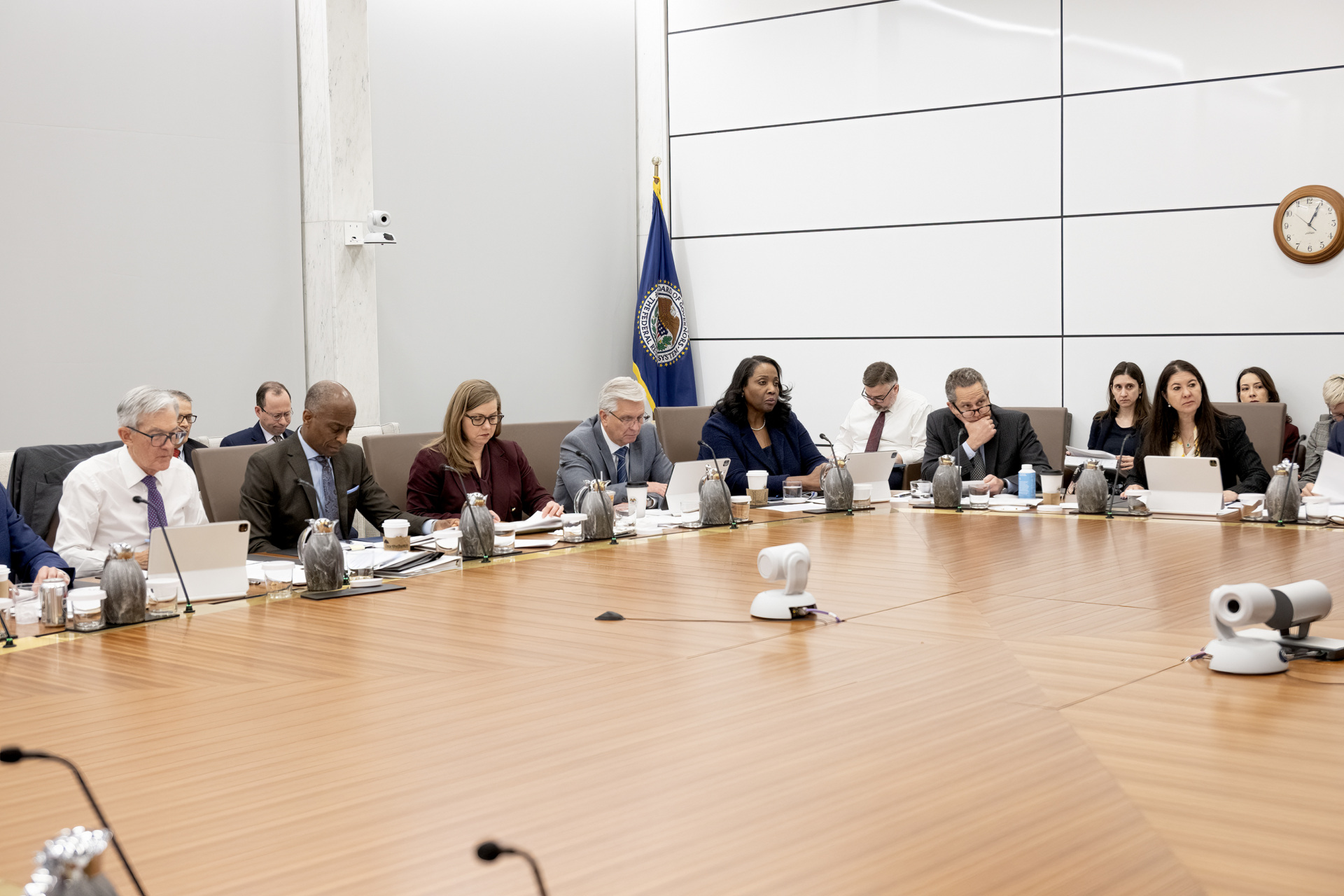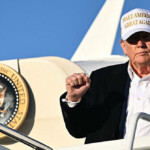Tariffs Have Waller More Worried About Jobs Than Inflation
Federal Reserve Governor Christopher Waller said last week that he would be inclined to look through a short-term rise in inflation stemming from newly proposed tariffs, signaling that he sees the labor market, rather than inflation alone, as the critical guide for monetary policy decisions in the months ahead.
In an interview with Bloomberg Television, Waller said that while higher tariffs would likely raise prices, they would not represent the kind of ongoing inflationary pressure that would demand a monetary policy response. Instead, he emphasized that the Fed’s primary concern should be signs of weakness in employment.
“If you see inflation going up a bit and unemployment staying low, you just ride it out,” Waller said. “If, however, you see the labor market softening quickly, then you act.”
Waller’s comments come at a moment when policymakers are grappling with the implications of possible tariff increases under a second Trump administration, as well as broader shifts in U.S. trade policy. Some economists have warned that new trade barriers could complicate the Fed’s goal of returning inflation to its two percent target. But Waller distinguished between a temporary price-level adjustment and a change in the underlying trend of inflation.
“The tariffs, if they go into place, are a one-time price level increase. It’s not a change in trend inflation,” he said.
Past experience supports Waller’s view. Studies of the Trump-era tariffs found that price increases were largely front-loaded and did not lead to accelerating inflation over time. The most compelling studies have found little pass-through to consumers, implying that the margins of importers and exporters absorbed most of the tariff. And where price increases did leak through to consumers, the effect was minor and short-lived. A 2019 Federal Reserve Board study, for example, concluded that tariffs imposed that year raised consumer prices modestly but had little ongoing effect on inflation expectations or wage dynamics.
Waller acknowledged that the new round of Trump tariffs are larger and broader than previous rounds. Because of that, the price impacts could be more substantial, and companies could respond by cutting investment and employment. “If you go back to big tariffs again, you’re going to get layoffs, you’re going to get unemployment rising, and you’re going to get inflation going up a bit,” he said.
Still, he stressed that even under those circumstances, the Fed’s primary task would be to prevent a sharp deterioration in the labor market, rather than to fight an isolated increase in prices. Rate cuts would be warranted, he said, if unemployment began rising rapidly—by two or three tenths of a percentage point per month—indicating a softening economy.
A Pragmatic Approach, Not a Tariff Panic
Taken together, Waller’s analysis suggests that the Fed’s most likely move later this year would be a rate cut if labor market conditions deteriorate, and that there is little chance of a rate hike even if inflation rises temporarily. His framework also implies a very low risk of stagflation. Waller sees the inflationary effects of tariffs as a one-time shock, not the beginning of a persistent wage-price spiral. As a result, while the economy could briefly experience higher prices and slower growth, the Fed would be more focused on supporting employment than restraining prices.
Waller also addressed a political reality that many economists have been reluctant to confront directly. While acknowledging that tariffs act as a tax on consumption, he noted that in a country with a rapidly expanding deficit, new revenue sources will likely be necessary. “Some form of tax revenue is going to have to happen,” he said, suggesting that tariffs could be seen as part of a broader fiscal strategy rather than purely as economic distortion.
In effect, Waller placed the tariff debate in a broader macroeconomic context. A modest increase in tariffs, he suggested, might be less damaging than broad-based increases in income or consumption taxes. The economic consequences of tariffs, he argued, depend heavily on their size and scope. Smaller tariffs—such as a 10 to 12 percent duty spread across a wide range of goods—could likely be absorbed with relatively little disruption, he said. Not coincidentally, 10 percent is the baseline tariff the Trump administration plans on implementing for countries that reach trade agreements to escape the reciprocal tariffs.

The members of the Board of Governors of the Federal Reserve System participate in the Federal Open Market Committee (FOMC) meeting held on March 18-19, 2025, in Washington, DC. (Federal Reserve via Flickr)
The timing of the tariffs also matters. Waller said that any significant economic effects from new trade restrictions would likely not materialize until mid-summer, making July a key point for reassessing monetary policy. Until then, he indicated, there was little need for the Fed to adjust rates based on hypothetical risks.
Waller’s interview highlighted a disciplined approach to monetary policy that seeks to avoid the twin dangers of overreacting to temporary shocks or underreacting to broader shifts in economic fundamentals. He emphasized the need for the Fed to remain flexible and data-dependent, rather than adhering rigidly to forecasts or models.
He also defended the importance of central bank independence, saying that while political criticism of the Fed is inevitable, policymakers must maintain focus on economic fundamentals rather than political pressure. “The key thing is: do you react to the economics, or do you react to the politics?” he said.
Waller’s remarks align with a broader view at the Fed that stresses patience in the face of supply-side shocks. While some officials have warned that new tariffs could complicate the disinflationary process, Waller’s comments suggested that the Fed’s dual mandate—maximum employment and stable prices—requires weighing both sides of the ledger carefully.
In offering a clear framework for thinking about tariffs, inflation, and employment, Waller set a measured tone for what could become a turbulent period in economic policymaking. His remarks pointed to a central bank preparing to respond with pragmatism rather than panic.


